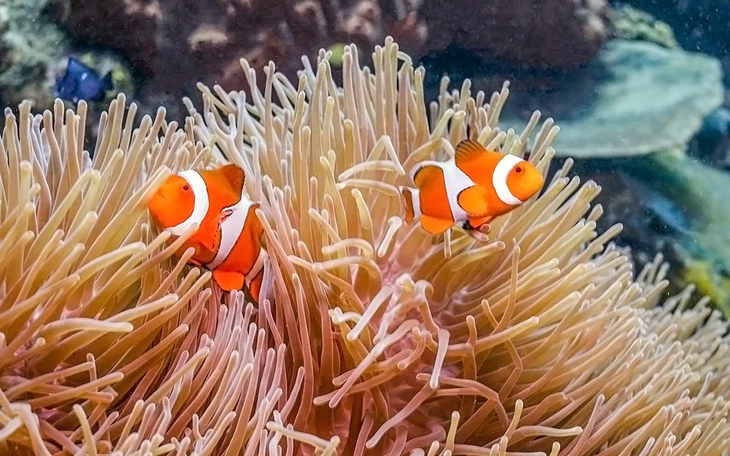
Clownfish bodies are shrinking due to climate change - Photo: PADI BLOG
Besides warming the oceans, climate change is also causing unusual changes in the bodies and behaviors of many marine species in general and fish in particular.
A new study published in the journal Science Advances shows that clownfish, the familiar fish in the animated film Finding Nemo , can… shrink their bodies to adapt to warmer ocean conditions.
Unlike birds that migrate to higher latitudes or grow large beaks to dissipate heat, scientists have discovered a completely new response. Specifically, clownfish can temporarily shrink their body size to increase their chances of survival during ocean heat waves.
Melissa Versteeg, a PhD student in marine science at Newcastle University (UK), said she was very surprised to discover this phenomenon.
"Normally, people think that bigger is better. We've never seen a fish that can shrink itself like that," Versteeg told NPR's Morning Edition .
Versteeg's team tracked 134 clownfish along coral reefs in Papua New Guinea for five months, during an ocean heatwave.
As water temperatures increased, some clownfish decreased in size, averaging only about 7.5cm long, but in hot conditions they "shrank" by 1 to 2mm.
Although this change was very small, it increased the fish's chances of survival by up to 78% compared to individuals that continued to develop normally.
Researchers have yet to pinpoint the exact mechanism by which clownfish shrink, but they hypothesize that a smaller body size reduces the fish’s nutritional needs and makes their metabolism more efficient, which is important when food is scarce and the environment is harsh.
“It seems that this shrinking gives those that shrink a better chance of survival than those that continue to grow as temperatures rise,” Versteeg said.
Interestingly, when the water temperature returned to normal, these clownfish also began to grow again.
Clownfish shrink in pairs
Clownfish are dependent on coral reefs, ecosystems that are already suffering from severe damage due to climate change and coral bleaching.
The study also noted that breeding pairs of clownfish often shrank together, suggesting a highly cooperative adaptation to increase the pair's chances of survival.
This discovery opens up the assumption that not only clownfish, but many other fish species living in coral reef ecosystems may also possess the ability to "bio-shrink" to quickly adapt to climate change.
It is a flexible form of response that has been rarely documented in biological studies.
"This is a beautiful example of cooperation and adaptation in nature. It is also a reminder that animals are changing profoundly to survive in a warming world ," Versteeg said.
Source: https://tuoitre.vn/loai-ca-noi-tieng-bien-hinh-khi-bien-nong-len-202506031338107.htm





























































































Comment (0)